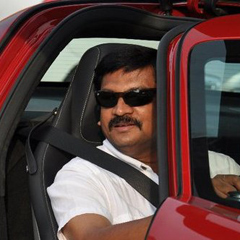BYD e6 test drive: A comfortable electric MPV that offers 520 km range

BYD, which reads Build Your Dreams, could be a new name in India but is well known globally. It makes buses, trucks and even electronic products.
BYD, which reads Build Your Dreams, could be a new name in India but is well known globally. It makes buses, trucks and even electronic products.
BYD, which reads Build Your Dreams, could be a new name in India but is well known globally. It makes buses, trucks and even electronic products.
Vehicles running on diesel are far and few between these days. The few carmakers that now manufacture diesel vehicles include Tata, Mahindra, Hyundai, Kia and Honda. Leading carmakers including Maruti and others have pulled the plug on diesel cars. They have even announced this publicly. The main reason to shun diesel is their Rs 2 lakh price difference with petrol variants specially after the BSVI norms have been implemented. However, petrol vehicles come nowhere near their diesel siblings in terms of fuel efficiency. For eg., the best-selling Suzuki Dzire sedan's diesel version used to provide a mileage of 30 kmpl but the fuel efficiency of petrol variant hardly comes closer to 20 kmpl. So, if you do not want a petrol vehicle, the next best option is electric. But there are not many electric vehicles being made these days. And those that are made are prohibitively expensive.
EV stars
At present Tata is the king of the EV segment. It has more than 80% market share. But this forms a miniscule 2% of its total sales volume. The sales could cross 25% by 2030, according to studies. The growth in sales of EVs is slow. Key reasons for this lacklustre showing is technology that is yet to fully develop, expensive battery and lack of support from governments. Apart from Tata, MG, Mahindra and Hyundai are producing electric vehicles but their sales figures are very low.
EV from China
At this juncture, here is a dream-come-true moment, courtesy China. BYD, which reads Build Your Dreams, could be a new name in India but is well known globally. It makes buses, trucks and even electronic products. Even Toyota uses its tech in its cars. BYD is attempting to drive in new dreams to India.
Not a car, it's an MPV
The e6 is a multipurpose vehicle. It can accommodate six people comfortably. Though the rear could take in one more row of seats currently that space is left for luggage. In size, it is closer to Toyota Innova.
Range is key
The e6 has the longest range on a single charge amongst any electric vehicle in India - 520 km. Blade battery technology is behind this long range. It is also safer than most other technologies available today. Since it is an MPV, the e6 can be used as a taxi, a private vehicle, a staff car or as a corporate vehicle.
Heart of EV
The electric motor is powered by a 71.7 kWh battery pack. It produces 95 bhp of power and 180 Nm of torque. It's literally a silent performer. And unlike other electric vehicles, when getting off the line, it doesn't surge forward despite the instant torque available; the progress is very smooth. The power delivery is very linear, resulting in good driveability. There are only three modes - drive, reverse and park.
Full range
The real-world range on offer is close to the claimed one -- 520 km. On city roads, it delivers on the full range promised. On highways, if the speed is above 100 kmph, the range could come down a bit. During test drive, we got more than 500 km. A 60kW DC fast charger takes just 90 minutes to give a full charge, a 40kW AC fast charger can give a full charge in two hours, and a 6.6kW AC slow charger will take roughly 12 hours for a full charge. Slow charging means less heat, and potentially a healthier battery. The battery gets guarantee for eight years or five lakh km.
Simple design
BYD has kept both the exterior and interior simple for the e6. It is a very practical vehicle with smooth, flowing lines. The front grille has some resemblance to the Hyundai Kona. The doors are big and open wide, making entry and exit easy. In the inside, the design is simple and spartan. The seats are comfortable, there is enough storage spaces and the large infotainment screen, which can be rotated, provides all the info about the vehicle. The suspension has been tuned to soak up all the undulations without any drama.
High on price but low on running costs
At Rs 29.60 lakh, the e6 is certainly not cheap. But the company claims that running costs are low. BYD says buyers can expect running costs at around Rs 1.50 per km. If one has a solar panel system at home to charge your EV, running costs would be nil. It says owners can save lakhs of rupees when they complete the warranty period in eight years or reach 5 lakh km. Minimal maintenance costs and zero service charges justify these claims. If you count on zero road tax in some states and add the government subsidy, this electric MPV can reach your home for Rs 31 lakh.
If you are looking at a conventional MPV with similar configurations, the on-road cost would touch Rs 32 lakh. If its mileage is 10 kmpl, it could cost the owner Rs 46 lakh for diesel to cover five lakh km. If one service costs Rs 10,000, for 50 services (for five lakh km), the owner would have to shell out Rs 5 lakh. Do the math, the answer will be a big yes for the e6.

